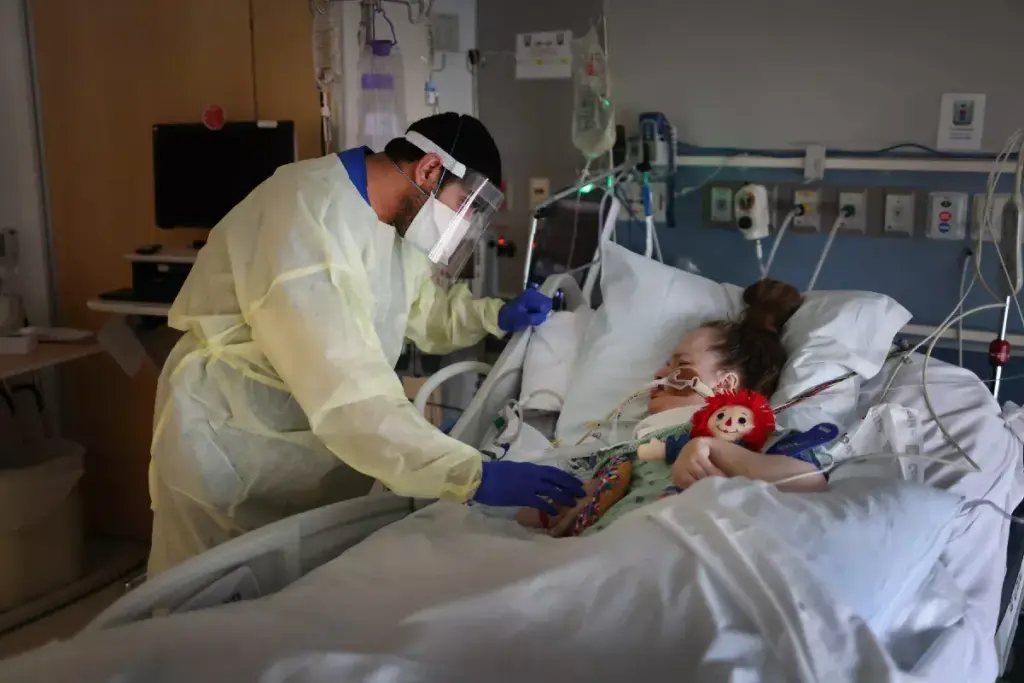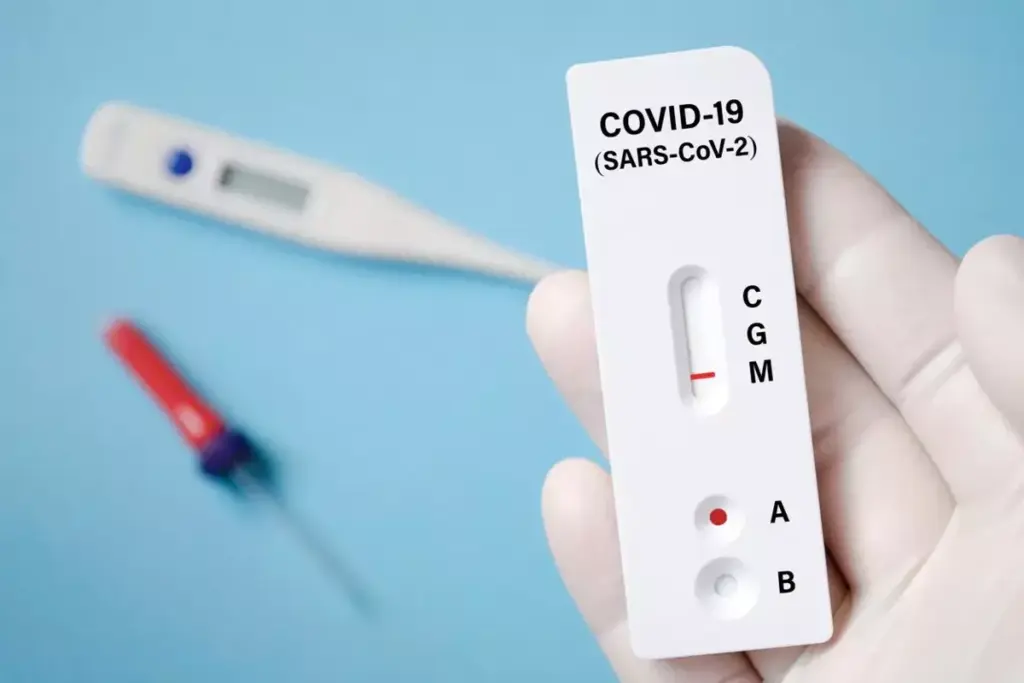Did you know that immunotherapy has shown significant promise in treating various types of cancer? This revolutionary treatment uses the immune system to fight cancer. It offers new hope to patients. Many people ask, “What is immunotherapy? since it works differently from traditional treatments like chemotherapy and radiation.
Immunotherapy boosts the body’s natural defenses. It helps them recognize and attack cancer cells better. This has led to big improvements in cancer treatment. Many patients are seeing better results.
Key Takeaways
- Immunotherapy is a revolutionary cancer treatment that leverages the immune system.
- It has shown promise in treating various types of cancer.
- Immunotherapy works by boosting the body’s defenses against cancer cells.
- This treatment offers new hope to patients with different types of cancer.
- Immunotherapy has led to significant advancements in cancer treatment.
Understanding the Basics of Immunotherapy

Immunotherapy is a new way to fight cancer. It makes the immune system better at finding and killing cancer cells. This has made a big splash in cancer immunotherapy research, giving hope to many cancer patients.
Immunotherapy is a treatment that helps the immune system fight cancer. The immunotherapy definition covers many therapies that boost the body’s defense against cancer.
The Definition and Purpose of Immunotherapy
The main goal of immunotherapy is to boost the immune system’s ability to find and destroy cancer cells. It’s different from other cancer treatments that directly attack cancer cells. Immunotherapy helps the immune system do its job better.
| Aspect | Description |
| Definition | A type of cancer treatment that enhances the immune system’s ability to fight cancer. |
| Purpose | To stimulate the immune system to recognize and attack cancer cells more effectively. |
| Approach | Supports the immune system’s natural processes to combat cancer. |
Historical Development of Immunotherapy
The idea of using the immune system to fight cancer has been around for over a century. But it wasn’t until the late 20th century that we really understood how it works. This led to the creation of modern immunotherapies.
The history of immunotherapy is filled with important milestones. We’ve discovered cancer antigens and developed checkpoint inhibitors. These breakthroughs have made immunotherapy a common cancer treatment today.
How Immunotherapy for Cancer Works
Immunotherapy boosts the immune system’s power to fight cancer cells. This new treatment is showing great promise in trials. It’s changing how we treat cancer.
The Role of the Immune System in Fighting Cancer
The immune system fights off diseases and infections. It’s key in finding and killing cancer cells. But, cancer cells can hide from the immune system by changing their surface.
Immunotherapy for cancer helps the immune system find and destroy these hidden cancer cells. It uses the body’s natural defenses for a targeted cancer treatment.
Mechanisms of Action in Immunotherapy
Immunotherapy uses different ways to work, depending on the treatment. The main types are checkpoint inhibitors and monoclonal antibodies.
- Checkpoint inhibitors let the immune system attack cancer cells more freely.
- Monoclonal antibodies are made in labs. They mark cancer cells for the immune system to destroy.
The table below shows the main differences between checkpoint inhibitors and monoclonal antibodies:
| Characteristics | Checkpoint Inhibitors | Monoclonal Antibodies |
| Mechanism of Action | Release immune system brakes | Mark cancer cells for destruction |
| Examples | PD-1 inhibitors (e.g., Pembrolizumab) | Rituximab, Trastuzumab |
| Primary Use | Various cancers, including melanoma and lung cancer | Various cancers, including lymphoma and breast cancer |
Knowing how immunotherapy for cancer works helps patients and doctors choose the best treatments. As research advances, immunotherapy’s role in fighting cancer will grow.
Types of Immunotherapy Treatments
Immunotherapy is a wide range of treatments that use the body’s immune system to fight cancer. These treatments have changed how we treat cancer, opening up new ways to help patients.
Checkpoint Inhibitors
Checkpoint inhibitors help the immune system fight cancer by removing blocks. They target proteins that cancer cells use to avoid being attacked by the immune system.
Examples of checkpoint inhibitors include PD-1 and CTLA-4 inhibitors. These treatments have shown great promise in fighting cancers like melanoma and lung cancer.
Monoclonal Antibodies
Monoclonal antibodies are made in labs to act like antibodies. They help the immune system attack cancer cells more effectively. They are designed to target specific cancer cells, protecting healthy cells.
Monoclonal antibodies can be used alone or with other treatments. Their ability to target cancer cells makes them a valuable tool in cancer therapy.
Adoptive Cell Transfer
Adoptive cell transfer takes T cells from a patient’s tumor, modifies them, multiplies them, and then puts them back in the patient. This method has shown promise in treating some cancers.
A key benefit of adoptive cell transfer is its personalized approach to cancer treatment. Using the patient’s own cells, this therapy offers targeted and effective treatment.
Cancer Vaccines
Cancer vaccines introduce substances that trigger the immune system to attack cancer cells. They can be used to prevent or treat cancer.
Therapeutic cancer vaccines are designed to treat existing cancer. They help the immune system fight cancer cells more effectively.
Here’s a summary of the different types of immunotherapy treatments:
| Type of Immunotherapy | Mechanism of Action | Examples |
| Checkpoint Inhibitors | Release brakes on the immune system | PD-1, CTLA-4 inhibitors |
| Monoclonal Antibodies | Target specific cancer cells | Rituximab, Trastuzumab |
| Adoptive Cell Transfer | Modify and reinfuse T cells | CAR-T cell therapy |
| Cancer Vaccines | Stimulate immune response against cancer | Provenge, BCG vaccine |
Checkpoint Inhibitors: A Closer Look
Checkpoint inhibitors are a new way to fight cancer. They use the body’s immune system to attack tumors. These drugs help the immune system fight cancer cells better.
PD-1 and PD-L1 Inhibitors
PD-1 and PD-L1 inhibitors are key in cancer treatment. They work by stopping cancer cells from hiding from the immune system. By blocking this interaction, these drugs let the immune system attack cancer cells. Drugs like pembrolizumab (Keytruda) and nivolumab (Opdivo) are PD-1 inhibitors. Atezolizumab (Tecentriq) is a PD-L1 inhibitor.
These drugs have greatly improved survival rates for some cancers. Clinical trials show they can lead to long-lasting responses.
“The approval of checkpoint inhibitors has marked a new era in cancer treatment, giving patients a more effective and less toxic option.”
CTLA-4 Inhibitors
CTLA-4 inhibitors help T cells fight cancer better. Ipilimumab (Yervoy) is a CTLA-4 inhibitor for melanoma. By blocking CTLA-4, these drugs boost the immune response against cancer.
| Checkpoint Inhibitor Type | Examples | Cancers Treated |
| PD-1 Inhibitors | Pembrolizumab (Keytruda), Nivolumab (Opdivo) | Melanoma, NSCLC, Renal Cell Carcinoma |
| PD-L1 Inhibitors | Atezolizumab (Tecentriq) | NSCLC, Bladder Cancer |
| CTLA-4 Inhibitors | Ipilimumab (Yervoy) | Melanoma |
In conclusion, checkpoint inhibitors are a big step forward in cancer treatment. They help the immune system fight cancer cells, improving outcomes for many patients.
Monoclonal Antibodies in Cancer Treatment
Monoclonal antibodies are key in fighting cancer. They target specific cancer cells for destruction by the immune system. This makes them a vital part of cancer treatment.
Production Process of Monoclonal Antibodies
Creating monoclonal antibodies starts with finding a cancer cell antigen. Scientists then make antibodies that stick to this antigen. They clone these antibodies to get lots of identical ones.
“Monoclonal antibodies have changed cancer treatment,” say experts. “They offer a targeted and less invasive option for patients.”
Types of Monoclonal Antibodies (MABs)
There are many types of monoclonal antibodies for cancer treatment. Some directly kill cancer cells. Others boost the immune system’s fight against cancer.
- Naked MABs: These antibodies target cancer cells on their own.
- Conjugated MABs: These are linked to drugs or radioactive particles to treat cancer cells directly.
- Bispecific MABs: These can bind to two targets, making them more effective against cancer cells.
Targeted Cancer Therapy with MABs
Monoclonal antibodies are a big step forward in cancer treatment. They target cancer cells, reducing harm to healthy cells. This leads to fewer side effects and better results for patients.
Monoclonal antibodies show the progress in immunotherapy. As research goes on, they could help treat more cancers. This gives hope to patients all over the world.
T Cells: The Warriors of Immunotherapy
T cells are key in immunotherapy, a promising way to fight cancer. They use the body’s immune system to attack cancer cells. These cells are a type of lymphocyte that plays a big role in cell-mediated immunity.
Types and Functions of T Cells
T cells come in different types, each with its own job in fighting off infections. The main types include:
- Cytotoxic T cells: These cells kill infected cells or send signals to start an immune response.
- Helper T cells: They help activate and guide other immune cells, like B cells to make antibodies.
- Regulatory T cells: These cells keep the immune response in check and prevent it from attacking the body’s own cells.
| Type of T Cell | Function |
| Cytotoxic T cells | Directly kill infected cells or produce chemical signals. |
| Helper T cells | Assist in activating and directing other immune cells. |
| Regulatory T cells | Regulate the immune response and prevent autoimmunity. |
Enhancing T Cell Activity in Cancer Treatment
To make immunotherapy work better against cancer, we need to boost T cell activity. There are a few ways to do this:
- Checkpoint inhibitors: These drugs let T cells attack cancer cells more freely.
- Adoptive T cell therapy: This method takes T cells from the body, changes them to fight cancer, and then puts them back.
- Cancer vaccines: These vaccines help the immune system spot and fight cancer cells.
By improving how T cells work, immunotherapy can become a more powerful tool against cancer.
Angiogenesis Inhibitors in Immunotherapy
Angiogenesis inhibitors are key in immunotherapy. They target how tumors get their blood supply. This is vital for tumor growth and spreading.
Understanding Angiogenesis in Cancer
Angiogenesis is when new blood vessels form from old ones. Tumors hijack this to get oxygen and nutrients. The role of angiogenesis in cancer progression is huge, marking a tumor’s turn to be malignant.
Angiogenesis involves many cell types and signals. In cancer, factors like VEGF are overactive. This leads to new, disorganized blood vessels.
How Angiogenesis Inhibitors Work
These inhibitors block angiogenesis, cutting off tumor nutrients and oxygen. They target different parts of angiogenesis, like signaling pathways and endothelial cells.
They often work by blocking VEGF or its receptor, VEGFR. Drugs like bevacizumab slow tumor growth by doing this.
| Drug | Target | Mechanism |
| Bevacizumab | VEGF | Monoclonal antibody that binds to VEGF, preventing its interaction with VEGFR |
| Sunitinib | VEGFR, PDGFR | Tyrosine kinase inhibitor that blocks signaling through VEGFR and PDGFR |
| Pazopanib | VEGFR, PDGFR, c-KIT | Tyrosine kinase inhibitor with activity against multiple targets involved in angiogenesis |
Angiogenesis inhibitors are now a big part of cancer treatment. They’re often used with other treatments. Knowing how these drugs work helps doctors choose the right treatment for patients.
Comparing Immunotherapy to Traditional Cancer Treatments
The field of cancer treatment has grown with immunotherapy. It offers a new way to fight cancer, different from chemotherapy and radiation therapy. Knowing the differences between these treatments is key for both patients and doctors.
Immunotherapy vs. Chemotherapy
Immunotherapy and chemotherapy are two different ways to treat cancer. Chemotherapy uses drugs to kill cancer cells, but it also harms healthy cells. Immunotherapy boosts the body’s immune system to fight cancer more effectively.
Key differences between immunotherapy and chemotherapy include:
| Characteristics | Immunotherapy | Chemotherapy |
| Mechanism of Action | Stimulates the immune system to fight cancer | Directly kills rapidly dividing cells |
| Side Effects | Generally fewer side effects, but can include immune-related adverse events | Can cause significant side effects, including hair loss, nausea, and fatigue |
| Duration of Treatment | Can be longer-term, with some treatments given over several months or years | Often given in cycles over a specific period |
Immunotherapy vs. Radiation Therapy
Radiation therapy kills cancer cells with high-energy particles or waves. It targets specific areas of the body. Immunotherapy, by contrast, treats cancer cells all over the body.
Immunotherapy has the power to create long-lasting effects, even after treatment ends. Radiation therapy’s effects are mainly in the treated area and may not last long.
Comparing immunotherapy to traditional treatments like chemotherapy and radiation therapy shows each has its own strengths and weaknesses. The right choice depends on the cancer type, stage, and the patient’s health.
Side Effects of Immunotherapy
Immunotherapy is changing how we treat cancer. It’s important for patients and doctors to know about its side effects. This treatment boosts the immune system to fight cancer. But, it can also cause inflammation and damage to healthy tissues and organs.
Immunotherapy has big benefits, but knowing the side effects is key. The side effects can vary a lot among patients. Understanding these effects helps make the most of immunotherapy while reducing risks.
Common Side Effects and Their Management
Side effects of immunotherapy include fatigue, skin rash, and inflammation in the lungs, liver, or colon. Managing these side effects often involves medication, lifestyle changes, and sometimes stopping treatment.
Management Strategies:
- Monitoring: Regular check-ups help catch side effects early, allowing for quick action.
- Medication: Corticosteroids or other drugs may be used to reduce inflammation and symptoms.
- Lifestyle Adjustments: Patients might need to change their diet or avoid certain activities to manage side effects.
For example, a patient with fatigue might start an exercise program to boost energy. A patient with a skin rash might need to change their skincare routine.
Keytruda and Other Immunotherapy Medications: Side Effect Profiles
Keytruda (pembrolizumab) is used to treat many cancers, like melanoma and lung cancer. Like other immunotherapy drugs, it can cause a range of side effects, from mild to severe.
| Medication | Common Side Effects | Severe Side Effects |
| Keytruda (Pembrolizumab) | Fatigue, skin rash, diarrhea | Pneumonitis, colitis, hepatitis |
| Opdivo (Nivolumab) | Fatigue, rash, diarrhea, nausea | Pneumonitis, colitis, nephritis |
| Yervoy (Ipilimumab) | Fatigue, diarrhea, rash, nausea | Colitis, hepatitis, hypophysitis |
Knowing the side effects of different immunotherapy medications is important. This knowledge helps manage side effects better. It also helps make informed decisions about treatment.
Effectiveness of Immunotherapy for Different Cancer Types
Immunotherapy works differently for each cancer type. It’s key to know which cancers it works best for. Some cancers see big improvements, while others don’t respond as well.
Cancers Most Responsive to Immunotherapy
Some cancers really benefit from immunotherapy. For example, immunotherapy for lung cancer has changed the game for many. Non-small cell lung cancer (NSCLC) responds well to certain treatments.
Melanoma, a skin cancer, also sees great results with immunotherapy. Checkpoint inhibitors like pembrolizumab (Keytruda) are often used.
Bladder cancer, kidney cancer, and some lymphomas also respond well. This success has led to more research into other cancers.
Cancers with Limited Response to Immunotherapy
But, not all cancers react the same way to immunotherapy. Pancreatic cancer and some brain tumors don’t respond as well. Scientists are working hard to find new ways to help these cancers.
It’s important to understand how different cancers react to immunotherapy. This helps doctors create treatment plans that work best for each patient. By finding biomarkers and genetic clues, doctors can choose the right treatment for each person.
Patient Selection for Immunotherapy
Biomarkers and genetic factors are key in choosing the right patients for immunotherapy. The success of immunotherapy varies greatly among people. Finding the best candidates is essential to get the most out of it.
Biomarkers and Genetic Factors
Biomarkers are molecules in blood, fluids, or tissues that show normal or abnormal processes. In immunotherapy, they help predict who will respond well to treatment. PD-L1 expression, microsatellite instability, and tumor mutational burden are important biomarkers.
Genetic factors also matter a lot. Some genetic mutations make tumors more likely to respond to immunotherapy. For example, tumors with high microsatellite instability do well with checkpoint inhibitors. Knowing these genetic factors helps doctors choose the best treatments.
Determining Who Will Benefit Most
Choosing the right patients for immunotherapy involves looking at many factors. These include the type of cancer, biomarker status, and overall health. Personalized medicine is used to tailor treatments to each patient’s unique genetic and molecular profiles.
By finding biomarkers and genetic factors linked to good responses to immunotherapy, doctors can pick the best patients. This targeted approach improves outcomes and helps manage costs and side effects of immunotherapy.
Can Immunotherapy Cure Stage 4 Cancer?
Immunotherapy’s success in curing stage 4 cancer depends on many factors. It has shown great promise in treating advanced cancer. But, its success is not the same for all patients or cancer types.
Success Rates in Advanced Cancer Cases
Immunotherapy has shown great success in some advanced cancers. For example:
- Melanoma: Immunotherapy has high response rates, with some patients seeing long-term remission.
- Non-Small Cell Lung Cancer (NSCLC): Certain immunotherapies have boosted survival rates in NSCLC patients.
- Renal Cell Carcinoma: Immunotherapy is now a standard treatment, leading to better outcomes.
But, success rates can differ a lot. This depends on the cancer type, genetic mutations, and the patient’s health.
Limitations and Realistic Expectations
While immunotherapy brings hope, it’s important to know its limits:
- Not all patients respond: Immunotherapy’s effectiveness can vary greatly among patients.
- Potential side effects: Immunotherapy can cause severe immune-related side effects.
- Cost and accessibility: These treatments are expensive and not available to everyone.
Patients should talk to their healthcare provider about their treatment options. This way, they can understand what immunotherapy can do for them.
Combination Therapies: Enhancing Immunotherapy’s Effectiveness
Combining immunotherapy with other treatments is changing cancer treatment. This approach is showing promise in improving patient results.
Immunotherapy with Chemotherapy
One common mix is immunotherapy with chemotherapy. Chemotherapy kills cancer cells with drugs. Adding immunotherapy boosts the immune system’s fight against cancer.
“The mix of chemotherapy and immunotherapy is very promising for treating different cancers,” says A top oncologist.
Research shows this combo can make chemotherapy more effective. It also lowers the chance of cancer coming back. For example, a study found better survival rates for lung cancer patients with this combo.
Immunotherapy with Radiation
Another promising mix is immunotherapy with radiation therapy. Radiation kills cancer cells with high-energy rays. This combo makes the immune system attack cancer cells better.
Studies show this combo boosts the immune response against tumors. For instance, a study found better response rates for melanoma patients with this combo.
Multiple Immunotherapy Approaches
Researchers are also looking into mixing different immunotherapies. This includes using checkpoint inhibitors and cancer vaccines together.
The idea is that different immunotherapies work in different ways. Combining them might lead to a stronger anti-tumor response. Early trials have shown promising results, with some patients seeing big tumor reductions.
As research keeps growing, combination therapies will likely become more key in cancer treatment. By using immunotherapy with other treatments, we might see better and longer-lasting results.
The Future of Cancer Immunotherapy Research
New technologies and treatments are changing cancer immunotherapy. Research is moving forward, leading to better ways to fight cancer.
Emerging Technologies and Approaches
Several new technologies are promising in cancer research. These include:
- CAR-T Cell Therapy: This method changes a patient’s T cells to attack cancer.
- Cancer Vaccines: Vaccines that help the immune system fight cancer.
- Checkpoint Inhibitors: These therapies let the immune system attack cancer more easily.
Personalized Immunotherapy Treatments
Personalized treatments are tailored to each patient’s cancer. This is thanks to genetic sequencing and biomarker research.
| Treatment Aspect | Personalization Approach | Benefit |
| Genetic Profiling | Identifying specific mutations in the patient’s cancer | Targeted therapy can be more effective |
| Biomarker Analysis | Assessing biomarkers to predict response to immunotherapy | Improved patient selection for treatment |
| Treatment Combination | Combining immunotherapy with other treatments based on patient response | Enhanced treatment efficacy |
The future of cancer immunotherapy looks bright. New technologies and personalized treatments are leading the way. These advancements will likely help more patients with different cancers.
Conclusion: The Evolving Landscape of Cancer Immunotherapy
Cancer immunotherapy is changing how we treat cancer, bringing new hope to patients. It uses the immune system to attack cancer cells. This is a big step forward in cancer treatment.
The field of cancer immunotherapy is growing fast, with new treatments coming out all the time. We now have checkpoint inhibitors and monoclonal antibodies, among others. These options give patients and doctors more choices.
As research keeps moving forward, we’ll see even more new ways to fight cancer. The future looks bright, with chances for personalized treatments and combining therapies. By keeping up with these advances, we can make treatments better and improve life for cancer patients.
FAQ
What is immunotherapy, and how does it work?
Immunotherapy uses the body’s immune system to fight cancer. It helps the immune system find and attack cancer cells. It also gives the immune system tools to fight cancer more effectively.
What are checkpoint inhibitors, and how do they work?
Checkpoint inhibitors are a type of immunotherapy. They block proteins that stop the immune system from attacking cancer cells. This lets the immune system attack cancer cells more easily.
What are monoclonal antibodies, and how are they used in cancer treatment?
Monoclonal antibodies are made in the lab to target specific proteins on cancer cells. They help mark cancer cells for destruction or block their growth. They can also carry chemotherapy or radiation to cancer cells.
What is the role of T cells in immunotherapy?
T cells are key immune cells in immunotherapy. They find and kill cancer cells. They can be improved to fight cancer better.
What is angiogenesis, and how do angiogenesis inhibitors work?
Angiogenesis is when tumors grow new blood vessels. Angiogenesis inhibitors block this, starving the tumor of oxygen and nutrients.
How does immunotherapy compare to traditional cancer treatments like chemotherapy and radiation?
Immunotherapy uses the immune system to fight cancer. Chemotherapy and radiation kill cancer cells directly. Immunotherapy can be used alone or with other treatments.
What are the common side effects of immunotherapy, and how are they managed?
Side effects of immunotherapy include fatigue, skin rash, and diarrhea. These can be managed with medicine, lifestyle changes, and other treatments.
Can immunotherapy cure stage 4 cancer?
Immunotherapy has shown promise in treating stage 4 cancer. Its success varies by cancer type and patient factors. Some patients see complete responses, while others see limited benefits.
What is the role of biomarkers and genetic factors in patient selection for immunotherapy?
Biomarkers and genetic factors help find patients who will benefit from immunotherapy. Doctors use these to tailor treatments to each patient.
What is the future of cancer immunotherapy research?
Cancer immunotherapy research is growing fast. New technologies and approaches aim to improve treatment results. Personalized and combination therapies are being explored.
Is immunotherapy the same as chemotherapy?
No, immunotherapy and chemotherapy are not the same. They treat cancer differently and have different side effects.
What types of cancer can be treated with immunotherapy?
Immunotherapy can treat many cancers, including melanoma, lung cancer, and kidney cancer. As research grows, more cancer types can be treated.










